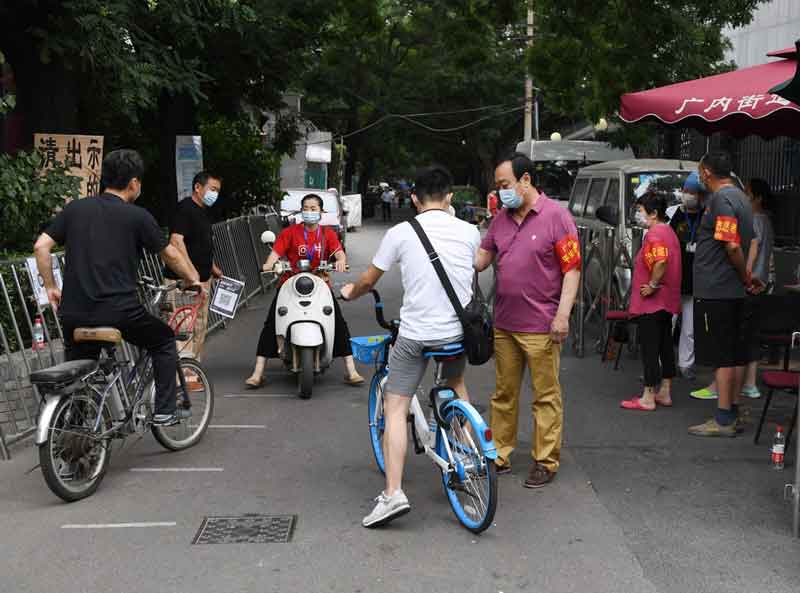×
The Standard e-Paper
Stay Informed, Even Offline

Hu Baogang checks a resident's body temperature at the entrance of a community in Xicheng District of Beijing, capital of China, June 24, 2020. [Xinhua/Zhang Chenlin]
As a rainstorm cooled down the sun-scorched road on an early summer's day in Beijing, Hu Baogang greeted every visitor to a hutong, one of the city's traditional alleys, with an electronic thermometer.